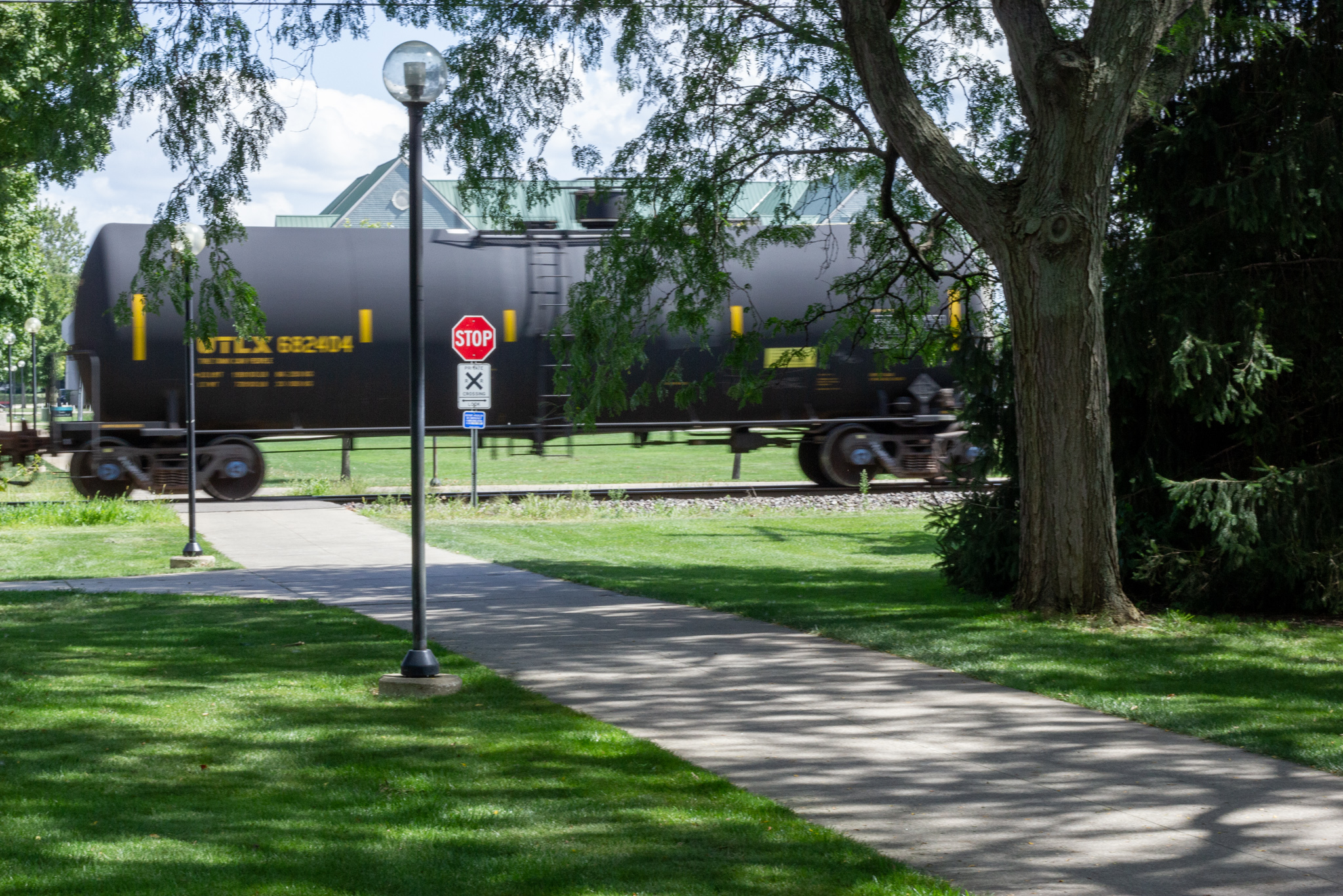Goshen College employees and students were informed by campus safety on Friday, Sept. 2, that a minor train accident had occurred on campus.
Taking place at approximately 8:45 a.m., the incident involved an employee who was not injured.“I received a call from the campus officer on duty that there was an accident on campus,” said
Chad Coleman, director of student life operations and campus safety. “There were paramedics, police and fire here.”
The details were unavailable to either party, so when arriving at the scene, Coleman felt worried when he noticed the train stopped, giving him what he described as a “heart stoppage.”
He shortly found out a worker was riding a lawn mower across the tracks when it was clipped by a train.
“Some other members of crisis management were already down there,” said Coleman. “We met with the police, fireman and the employee involved, who was okay, just shaken up a bit.”
Whenever there is a train accident with a vehicle or person, no matter the severity, there is an immediate dispatch of police and paramedics and, at times, airlifts.
In this case, that was called off, but Coleman said: “It was one of those scary reminders. This employee wasn’t trying to beat the train. [He] just didn’t see the train, and a lawn mower is loud — anybody could have made this mistake, and folks have made this mistake.”
Coleman is unsure if they were honking the train horn in this instance but explained that it is easy for it to sneak up on you despite how loud the horn is.
At sporadic times each day, freight trains pass through the middle of campus. Goshen College is aware of the dangers this can pose.
The last time GC had a major train accident was in the summer of 2016, when an employee was crossing the railroad. In Coleman’s 20 years, it is the fourth train-related incident; there have been injuries, but no one has died.
GC hopes to work with railroad companies on a city level to prevent future incidents from happening.
“[We are] working with the railroad company, determining what else can be done and if and when this is supposed to go away,” Coleman said.
In the meantime, he hopes to reinforce the message of train safety.
“That very same day, I had a message in the communicator about the railroad track as a part of campus safety 101,” he said.
He also emphasized the value of prevention and awareness, citing announcements regarding train safety in the Communicator. Videos covering train safety that can be found on the college website are also addressed during new student orientation.
One reason the underpass was built was to help with time issues, especially for students who would run across the tracks in front of an oncoming train in a rush to get to class.
“We’re relying on people being smart and safe,” Coleman said.
“It’s not a case of ‘how would you do that?’ It can happen to anybody; it can take just one second to lose focus on what you’re doing. It pays to stop, watch and listen.”



